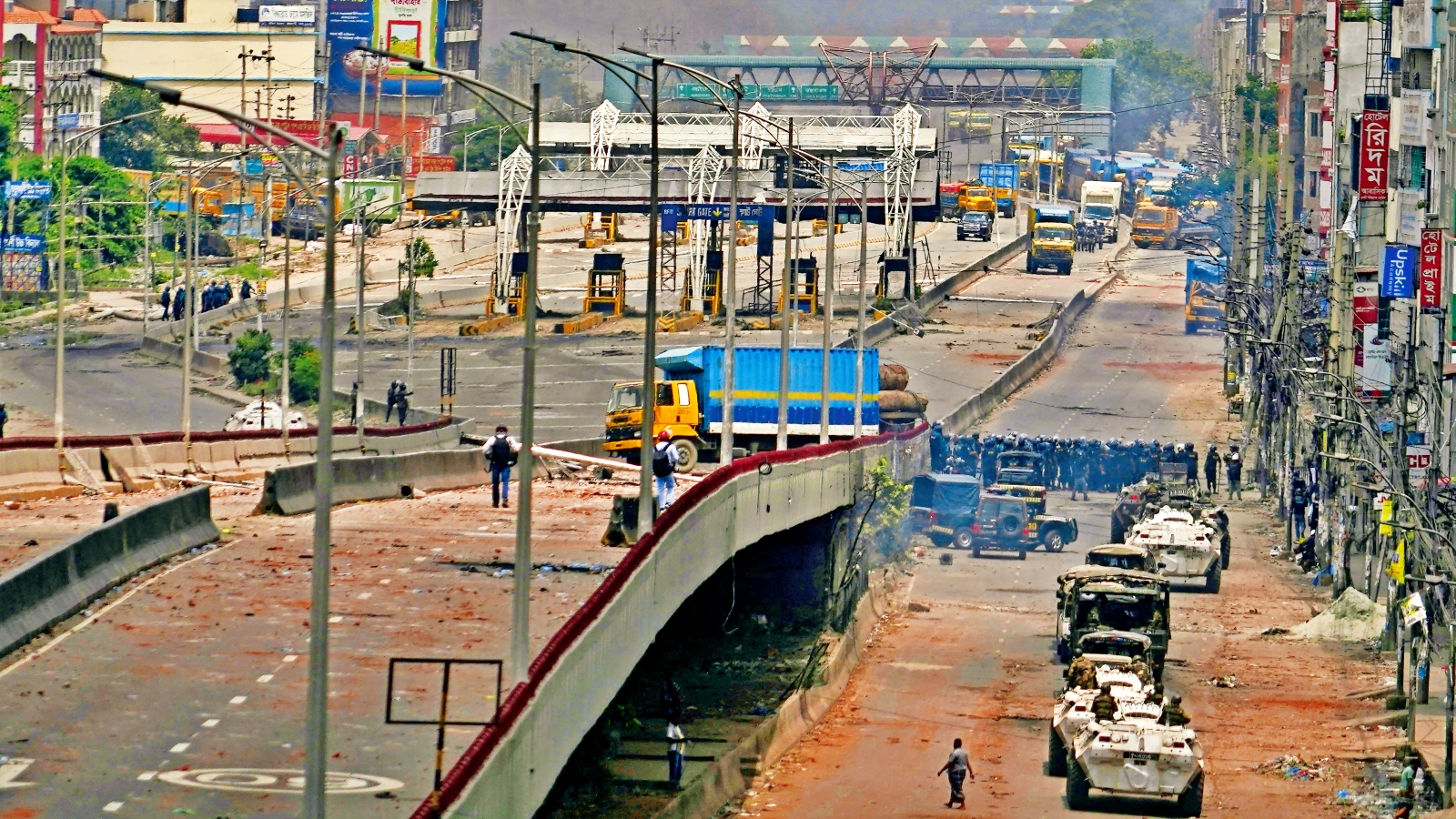 |
|
The recent protests in Bangladesh over a quota system for government jobs reserved for families of freedom fighters have escalated into a major crisis, leaving over 100 dead and plunging the capital Dhaka into a state of siege. The situation has prompted a cautious response from India, which has facilitated the return of over 900 Indian citizens while maintaining a stance of non-interference in what it considers an 'internal' matter.
The protests began after a statement by Prime Minister Sheikh Hasina, leader of the ruling Awami League, sparked outrage among young people. Her statement, linking the quota system to the contributions of freedom fighters in the 1971 Liberation War, was seen by many as divisive and discriminatory. Protesters argue that the 30% quota unfairly benefits the ruling party and its allies, while they face stiff competition for limited government jobs.
The conflict at the heart of the protests is rooted in the deep faultline of history and identity in Bangladesh. While Hasina's government invokes the legacy of the 1971 war to justify the quota system, a significant portion of the population, particularly the youth, was born after the war and view the quota system as an outdated and discriminatory practice. The protesters' embrace of the 'Razakar' label, a term associated with atrocities committed during the war, underlines their frustration and their rejection of the historical narrative used by the government.
The situation has been further complicated by the government's heavy-handed response. The imposition of a curfew and an internet shutdown have effectively cut off Bangladesh from the outside world and hampered the flow of information. The government has also deployed the army to control the protests, raising concerns about the potential for further violence. While the government seeks to justify its actions as necessary to restore order, critics argue that these measures are an attempt to silence dissent and suppress the protesters' demands for reform.
The international community has been watching the situation closely, with neighboring India walking a delicate line. While providing assistance to its citizens and expressing concern over the violence, India has maintained a policy of non-intervention, acknowledging the sensitivity of the situation. The response reflects the complex relationship between India and Bangladesh, where maintaining stability and good relations with the ruling government are considered crucial, even as concerns over human rights and democratic principles are raised.
The future of the quota system remains uncertain, with the Supreme Court expected to play a decisive role. A decision to scrap or significantly reform the system could offer a way out for the government, while also addressing the grievances of the protesters. However, the current situation in Bangladesh underscores the deep social and political divisions that continue to plague the country, and the potential for further unrest remains a significant concern.
Source: Delhi cautious as Dhaka in siege, over 100 killed in anti-reservation protests
